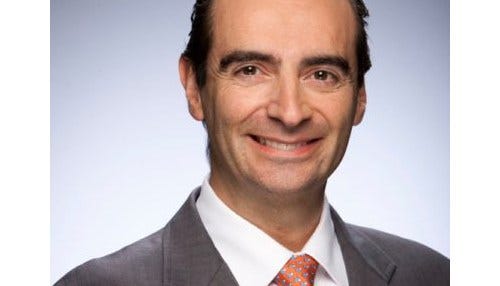Attracting Leaders With a World View

Subscriber Benefit
As a subscriber you can listen to articles at work, in the car, or while you work out. Subscribe NowWe are living one of the fastest eras in history, a time where innovation seems to have taken a high-speed train, leaving us with this feeling that everything is more chaotic and uncertain than a decade ago. To keep pace, organizations must develop and attract talent that can perform at the highest levels under the most pressing and unpredictable circumstances.
There are multiple ways to develop high potential individuals into valued leaders and experiencing the world outside of your birthplace is one of the most effective. Leaders must earn the respect and trust of followers before anything happens, and the challenge is much greater when the culture is different, the language is different, the food is different and more.
And there is a big difference between short international assignments, say 1-3 months, and longer-term experiences that require you to actually live, eat and lead like others do. The learning experience goes from almost theoretical to a very practical experiential learning, where leading a team is not going to happen by following a recipe from a quick guide.
Evidence supports that growth comes from hard work, and living abroad certainly falls in that category (particularly when it involves moving with family, leaving jobs and comfort zones behind), but many companies cannot afford this type of intentional development program due to cost considerations. What to do, though, if we agree that having a global leader is essential to your organization’s success? Here are some actions that can be taken by organizations of all sizes and from any sector:
In absence of long term international assignments, give your leaders exposure to global projects that include multiple time zones and employees from different countries.
Add “global interpersonal skills”, “developing global relationships” and “working across cultures” to your list of required competencies and talent development programs. The skills and experience required could be achieved using a combination of formal training, participation in projects and international missions.
Work with internal and external partners that are both committed and experienced that could help you bring global talent to your organization. When you don’t have the time to develop a global leader for a specific role, you may need to bring the talent from outside your organization.
Experiencing diverse cultures and situations can prepare leaders for difficult or offsetting situations. It’s not just cultural from an international perspective, but working with minority audiences within the US. Challenging and pushing the teams beyond their comfort zones will also prepare and engage them into new ways to solve problems and think differently to grow the business.
Finally, as a leader in charge of deciding who will lead your organization, do yourself a favor and experience it yourself.
I’m one of those who believe that having excellent local relations in your headquarters community is not enough to satisfy the requirements of global roles anymore. In the past, a well-connected local influencer would be able to land a global role in headquarters at the top of an international firm. In today’s world, your main business will likely come from international markets and not necessarily your home country, let alone your home state, and although having good relationships in your own HQ community is very important for obvious reasons, bringing executive talent with a world view is essential to the vitality and future of high performance organizations.
Finding diverse executives with international experience who are right for your culture, with a demonstrable track record and proven ability to adapt and lead change, is not easy. Search teams are rarely focused on and dedicated to the selection process, and most are not well equipped to ask probing questions.
It is, however, extremely vital for leaders of organizations, including the hiring authority, that the process between external experts and employees assigned to the search committee works like a Swiss clock. For that to happen, it is important to include individuals that have experienced first hand the type of challenges and who share some of the same traits that are expected from the candidates, like global experience, high performance leadership work and diversity.
The world keeps growing more and more complex. Deciding who leads is one of the most important jobs of top leadership. Be courageous, get out of your comfort zone and bring candidates that you can’t find in your backyard. People continue to be your most valuable asset.
Kiko Suarez, Ph.D. is a senior partner with the executive search and leadership consulting firm Wheless Partners
